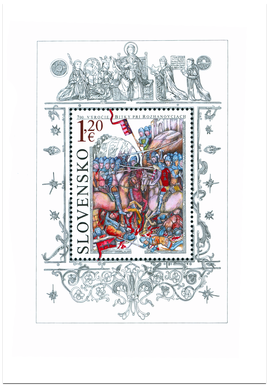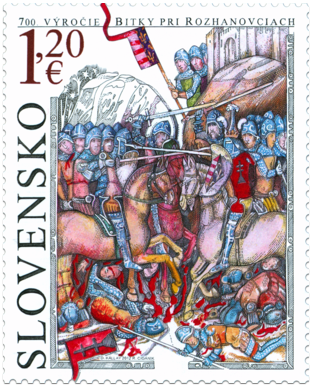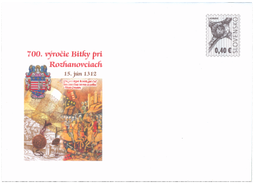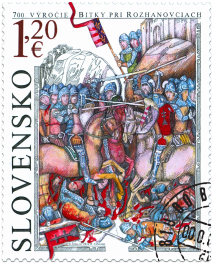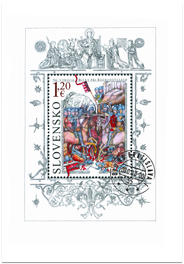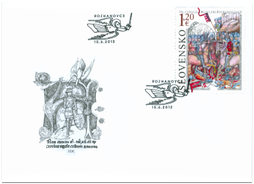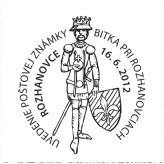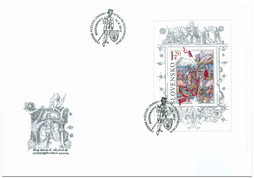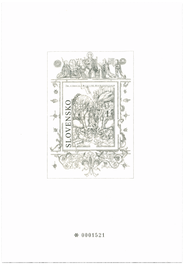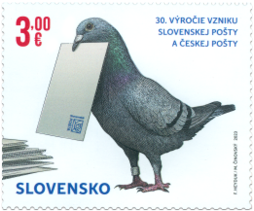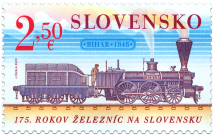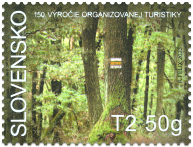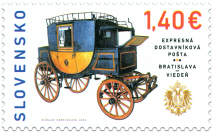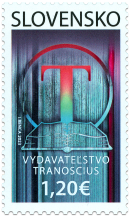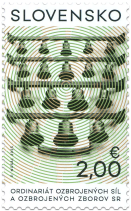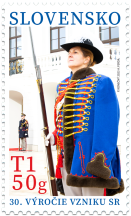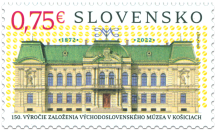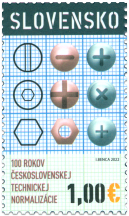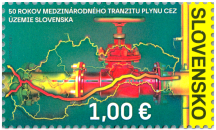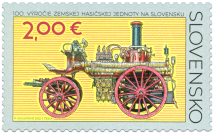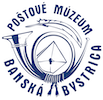518 Date of issue
15.06.2012 Face value
1.20 € Sell price
1.20 €
The 14th century was a Golden Age of Slovak towns. In this century, there were around one hundred towns and the Slovak region was becoming the most urbanised area of the Hungarian Kingdom. On the grounds of a village founded by some Kosa, a new town called Košice grew rapidly. It was situated on the European trade route connecting the Black Sea and the Baltic Sea. The town was growing and getting richer, but powerful aristocrats Amade from the Aba family did not like it. They robbed merchants heading to Košice, and they even plundered in the town itself. During the one raid, citizens resisted and killed the old Amade, and his two sons with other fighters were arrested. It was unprecedented impudence, and the war was about to happen.
The young king Charles Robert of Anjou stood up for the citizens of Košice and commanded the nobility of Eastern Slovakia to gather under the royal flags. Amades also gained a powerful ally – the biggest magnate in Slovakia, Matthew Czak of Trenčín and his armies. The battle between these two armies took place on the plain near the village Rozgony (today Rozhanovce) near Košice on 15th June 1312. This bloody battle caused heavy casualties among knights on both sides, but the royal army defeated the rebel army. In the 1358, a chronicler wrote: “It was the most vicious battle since the Mongol invasion in the Hungarian Empire.” This momentous event was also painted by a painter who illustrated the Illuminated Chronicle after 1370. He depicted the defeat of Amades and armies of Matthew Czak of Trenčín by the falling of the flag with the historical symbol of Slovakia – double cross on three hills. This picture served as a theme for the stamp.
From the historical point of view, the event is noteworthy because for the first time in the Slovak history, a town resisted the aristocrats. Košice’s townsmen looked for independent position in the structure of feudal society as well as other European cities.
Matúš Kučera
© 2024 POFIS - Postal philatelic service. All rights reserved

